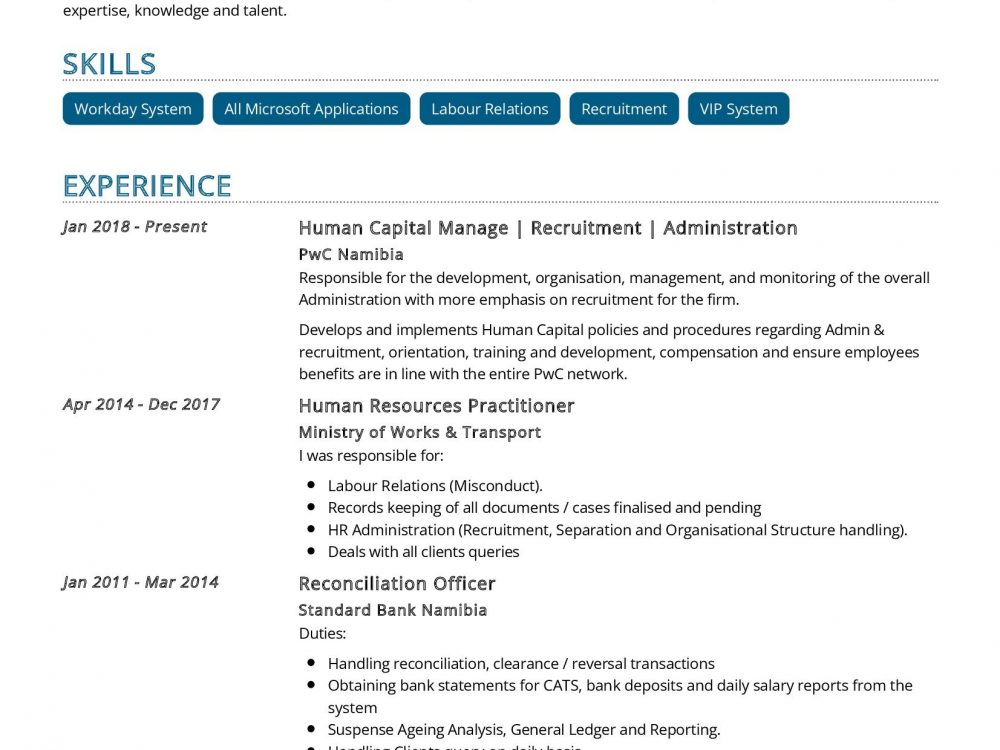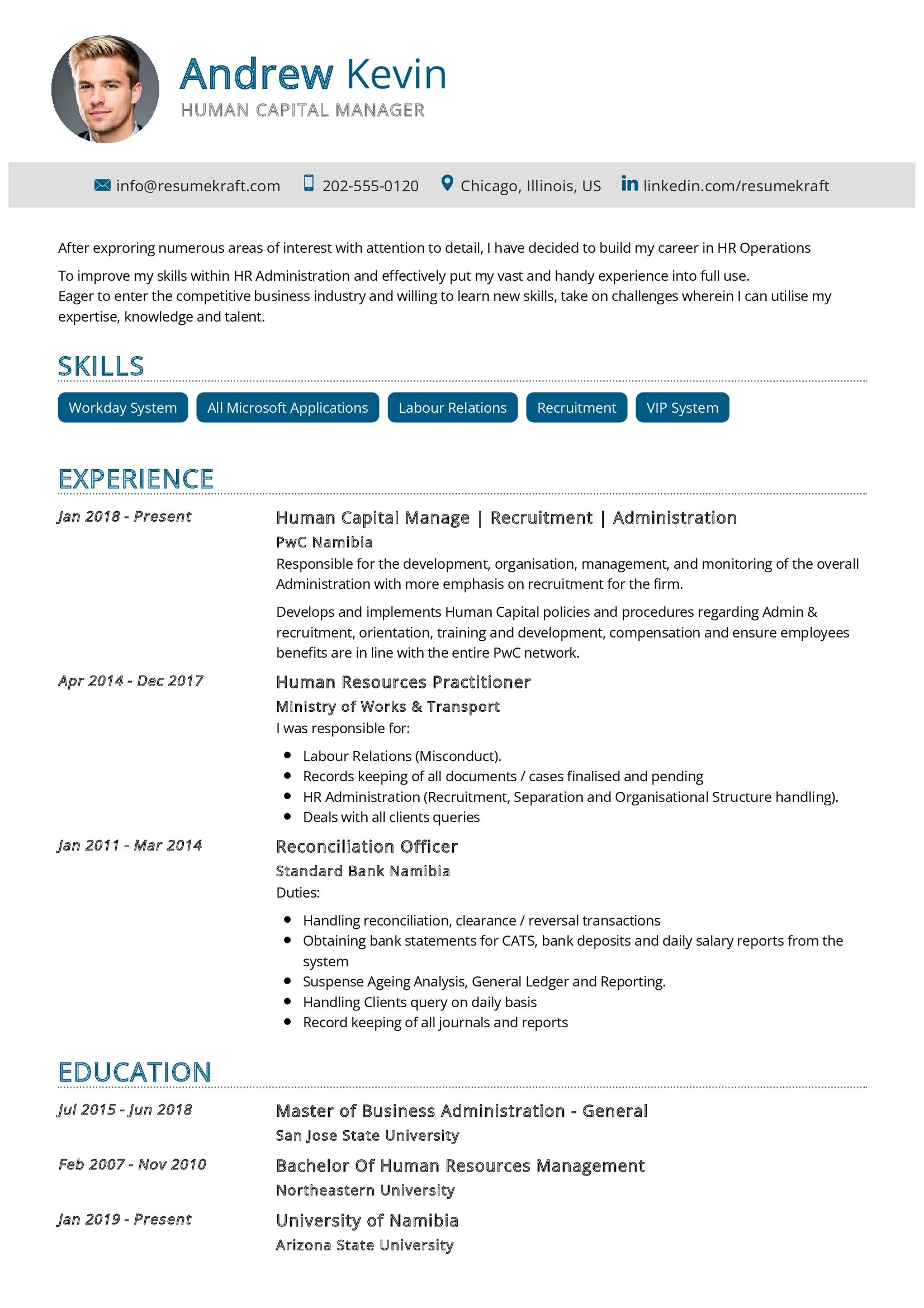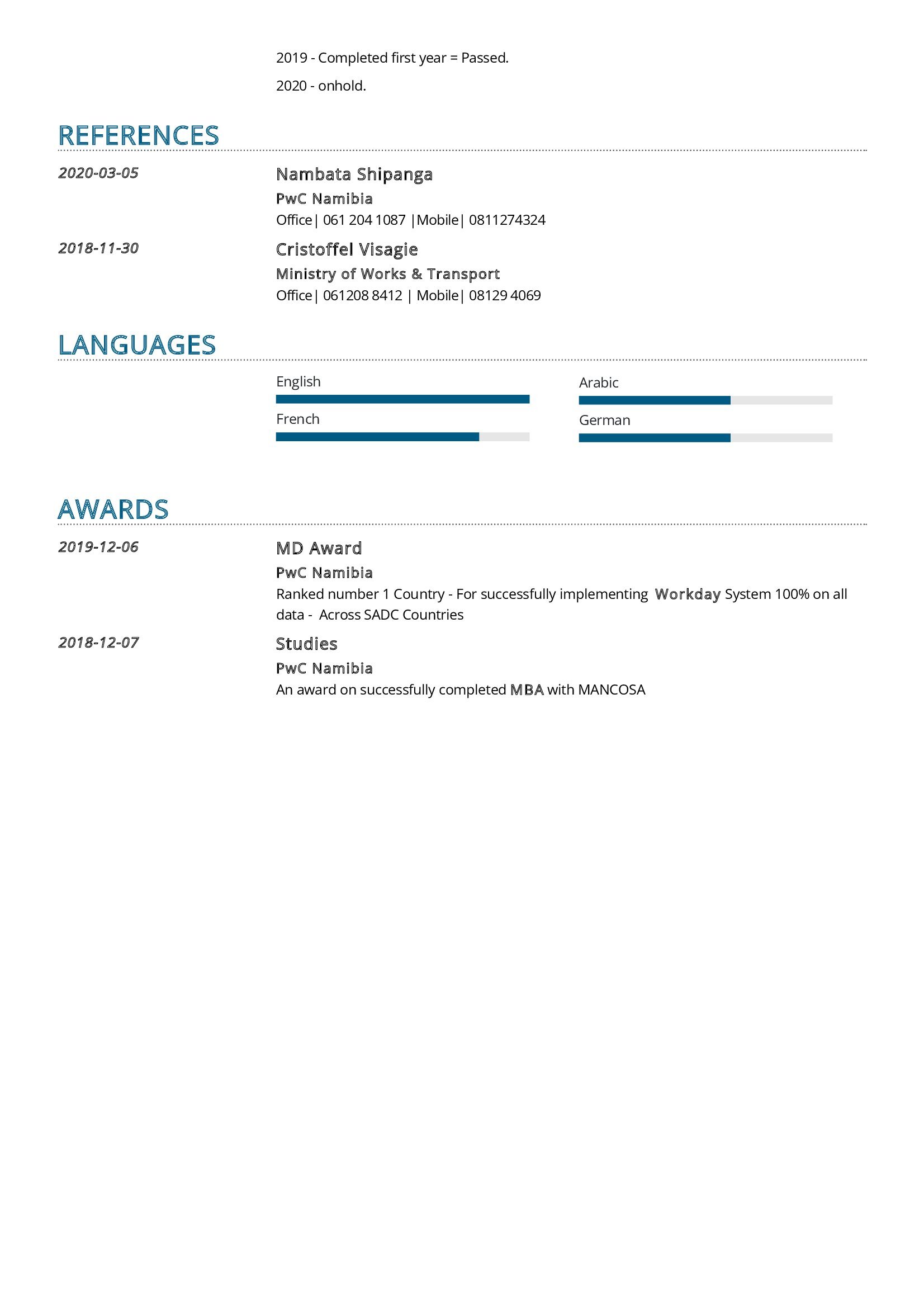Understanding the Vital Role of a Human Capital Manager
In today’s dynamic business landscape, the role of a Human Capital Manager holds immense significance. It’s a position that requires a delicate balance between human resources expertise and strategic thinking. Let’s dive deeper into the multifaceted role of a Human Capital Manager, exploring their responsibilities, qualifications, and the skills that make them invaluable assets to any organization.
Key Responsibilities of a Human Capital Manager
The role of a Human Capital Manager is a tapestry of diverse responsibilities, each contributing to the organization’s success in its unique way. Here are some of the core responsibilities that define this crucial position:
- Talent Acquisition and Recruitment: A Human Capital Manager plays a pivotal role in attracting and selecting top talent. They collaborate with hiring managers to define job requirements, create job postings, conduct interviews, and oversee the onboarding process.
- Employee Development and Training: Nurturing the skills and talents of existing employees is another vital aspect. Human Capital Managers design and implement training programs, identify skill gaps, and encourage continuous learning within the organization.
- Performance Management: They oversee the performance appraisal process, providing guidance to managers on setting performance goals and conducting evaluations. They also address performance issues and help create improvement plans.
- Workforce Planning: Human Capital Managers analyze workforce data to determine staffing needs. They anticipate future talent requirements, which is crucial for the organization’s growth and sustainability.
- Employee Relations: Maintaining a healthy work environment is essential. They address employee concerns, mediate conflicts, and ensure that the organization complies with labor laws and regulations.
- Strategic HR Planning: Human Capital Managers align HR strategies with the overall business goals. They participate in strategic planning sessions and contribute their expertise to help the organization succeed.
- Compensation and Benefits: Managing compensation packages and benefits programs is a significant responsibility. They ensure that the organization offers competitive salaries and attractive benefits to attract and retain top talent.
Each of these responsibilities requires a deep understanding of HR principles and a strategic mindset to drive the organization forward.
Qualifications and Requirements for Human Capital Managers
Becoming a Human Capital Manager is a journey that demands a combination of education, experience, and specific skills. Here are the qualifications and requirements typically expected from candidates in this role:
- Educational Background: A Bachelor’s or Master’s degree in Human Resources, Business Administration, or a related field is often required. This educational foundation provides a solid understanding of HR principles and practices.
- HR Experience: Candidates should have several years of experience in HR roles, gradually progressing to positions of greater responsibility. This journey helps them gain a practical understanding of HR functions.
- Leadership Skills: Human Capital Managers need strong leadership abilities to guide their HR teams effectively. These skills are often honed through years of experience and leadership roles.
- Communication Skills: Effective communication is critical in HR, as Human Capital Managers need to convey policies, negotiate with employees, and provide clear guidance to the workforce.
- Legal Knowledge: A solid understanding of labor laws and regulations is essential to ensure compliance and protect the organization from legal issues.
- Problem-Solving Abilities: HR professionals often face complex issues that require creative problem-solving. Human Capital Managers should excel in this area.
- Tech Savvy: Proficiency in HR software and systems is increasingly important for managing and analyzing HR data efficiently.
Acquiring additional certifications in HR, such as SHRM-CP or HRCI, can also enhance a candidate’s profile in the competitive job market.
Skills That Make a Human Capital Manager Exceptional
Human Capital Managers need a diverse set of skills to excel in their roles. These skills can be categorized into soft skills and hard skills:
Soft Skills:
- Leadership and Team Management: Effective leaders can motivate and guide their teams to success, creating a positive work environment.
- Communication: Clear and empathetic communication is crucial for addressing employee concerns and fostering collaboration.
- Problem-Solving: The ability to analyze complex HR issues and find practical solutions is invaluable.
- Adaptability: HR landscapes change, and Human Capital Managers must adapt to new trends and technologies.
- Interpersonal Skills: Building strong relationships with employees and management is vital for effective HR management.
Hard Skills:
- Data Analysis: Proficiency in data analysis tools and HR software helps in making informed decisions based on workforce data.
- Legal Knowledge: Understanding labor laws and regulations is crucial for compliance and risk management.
- Training and Development: Designing and implementing training programs requires expertise in adult learning principles.
- HR Software: Familiarity with HRIS (Human Resource Information System) software for managing employee records and data.
- Strategic Planning: The ability to align HR strategies with overall business goals is essential for contributing to the organization’s success.
These skills collectively make a Human Capital Manager an indispensable asset to any organization, contributing to its growth and stability.
Crafting an Effective Resume for a Human Capital Manager
Your resume is your opportunity to showcase your qualifications, experience, and skills as a Human Capital Manager. Here are some tips to create a compelling resume:
- Highlight Leadership Roles: Emphasize instances where you’ve led HR teams to success, demonstrating your leadership abilities.
- Show Impactful Initiatives: Detail HR programs or initiatives you’ve spearheaded and the positive impact they had on the organization.
- Quantify Achievements: Use metrics to quantify your accomplishments, such as the percentage increase in employee retention or training program success rates.
- List Certifications: Include relevant HR certifications to demonstrate your commitment to continuous learning and professional development.
- Customize for the Role: Tailor your resume for each job application, highlighting experiences and skills that align with the specific job description.
Your resume should not just be a document but a compelling narrative of your journey,
accomplishments, and potential as a Human Capital Manager.
Conclusion
The role of a Human Capital Manager is pivotal in shaping an organization’s success by managing its most valuable asset: its people. It requires a unique blend of leadership, communication, and HR expertise to navigate the complexities of the modern workforce.
If you aspire to become a Human Capital Manager or are seeking to hire one, it’s crucial to recognize the multifaceted nature of this role and the qualifications and skills required for success.
Remember, your journey towards becoming a Human Capital Manager is a path of continuous learning and growth. Embrace each opportunity to enhance your skills, and never underestimate the positive impact you can have on an organization’s culture and performance.
Ready to take the next step in your HR career? Consider utilizing our AI Resume Builder to create a standout application and prepare for the Human Capital Manager job interview. Your journey awaits!



